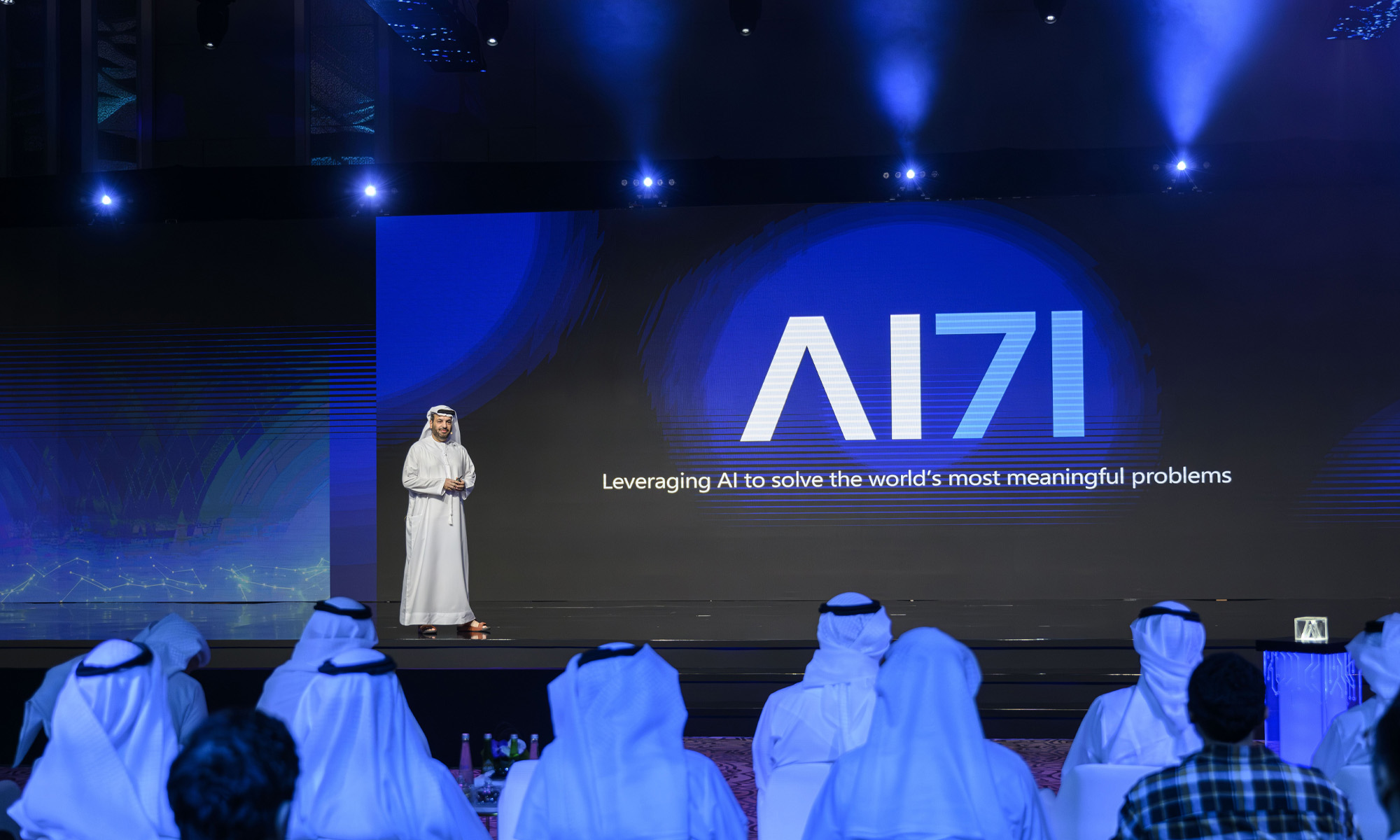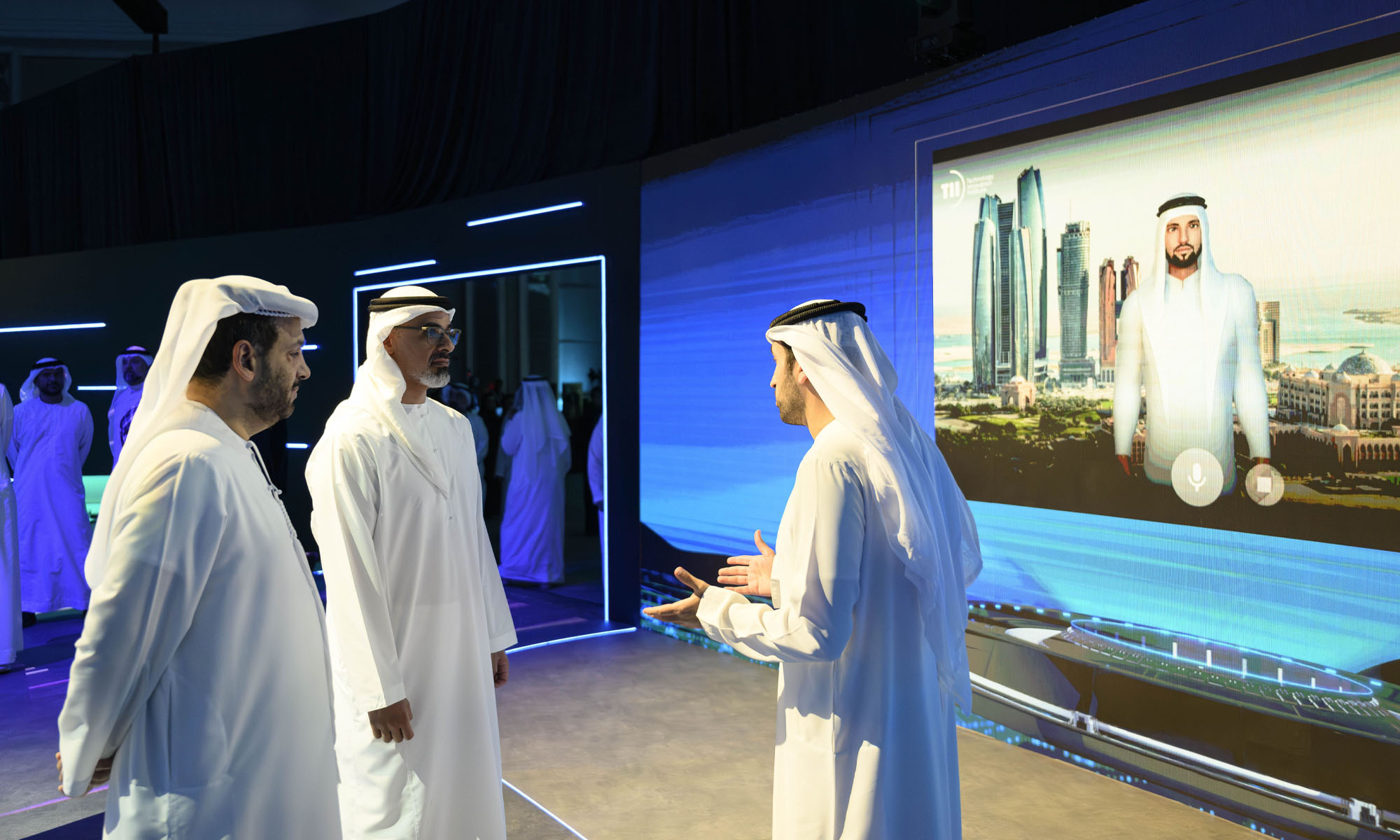News
Abu Dhabi AI Company Aims To Create Global Tech Hub
Backed by the Advanced Technology Research Council, AI71 seeks to democratize access to AI using the UAE’s Falcon large language model.

Abu Dhabi’s Advanced Technology Research Council has launched a new artificial intelligence company known as AI71 in a bid to become a global hub for the emerging technology.
The new entity will democratize access to AI and is built using the Falcon large language model developed by the research council’s Technology Innovation Institute.

AI71 will soon be taken to market by commercialization arm VentureOne and was formally launched by Sheikh Khaled bin Mohamed, Crown Prince of Abu Dhabi.

The company is designed to cater to medical, legal, education, and government fields, with “many others” to come, according to Faisal Al Bannai, secretary general of the council:
“By creating AI71, [the company] becomes a major part of driving AI use across multiple sectors. So, it increases our efficiency and ability to be much more productive and competitive globally. We will not be shy in our objectives. We will not be humble in our goals. We are determined to be a key player in shaping where AI is going globally. AI71 will play a pivotal role in this journey”.
Also Read: How (And Why) To Start A Tech Business In Dubai
AI71 has already signed an agreement with the Minister of State for Artificial Intelligence, Digital Economy and Remote Work Applications, Omar Al Olama, and local start-up ecosystem Hub71. Meanwhile, the company will join forces with major global corporations, including Amazon Web Services, PwC, World Wide Technology, and CNTXT.
Generative AI holds enormous economic potential. As investments in the sector continue to grow, Gulf countries are expected to generate $23.5 billion by 2030. The UAE has already made great strides in AI after recently unveiling the world’s largest Arabic natural language model.
News
Influencer Growth Fuels Saudi Creator Economy Surge
The Kingdom’s creator economy grew over 32% in Q1 2025, fueled by TikTok, UGC, and cost-per-action (CPA) influencer models.

Saudi Arabia’s creator economy saw a significant 32.37% growth in the first quarter of 2025, driven by an uptick in influencer marketing, content-driven e-commerce, and the increasing influence of user-generated content (UGC). These insights come from a recent study by Admitad and the Stllr Network.
Much of this momentum is coming from video-based platforms, where brands are leaning on creators who feel more relatable than polished ad campaigns. The trend shows a clear preference for authenticity, as audiences gravitate toward content that feels real and personal.
Mohannad Alzahrani, Co-founder and VP KSA of Stllr Network, highlighted the shift: “The rise of user-generated content (UGC) is changing the way brands engage with consumers. Audiences trust real creators more than traditional advertising, making UGC a key driver of authenticity and sales”.
TikTok remains the dominant platform in this space, reportedly reaching 88% of the Saudi population. It also showed the sharpest rise in influencer-led transactions. Other platforms followed with solid, if less dramatic, growth: X was up 17%, Instagram increased by 12%, and Telegram by 10%.
In terms of content niches, beauty led the pack with a 56% growth rate, followed by lifestyle at 45.8% and fashion at 18.2%. Tech content also showed healthy traction at 10.6%, while entertainment, food, fitness, parenting, and gaming posted smaller — but still positive — gains.
Also Read: Top E-Commerce Websites In The Middle East In 2025
The report analyzed more than 300,000 influencer-driven purchases. These efforts translated into a 15% year-on-year jump in Gross Merchandise Value (GMV) and a 5% increase in the number of orders in 2024. Influencers themselves are seeing the benefit, with average order values hitting $54 and creator earnings rising by 14%.
A noticeable trend is the move away from fixed-rate deals. More influencers in Saudi Arabia are embracing hybrid compensation models — especially cost-per-action (CPA) setups that tie their earnings directly to performance.
As Anna Gidirim, CEO of Admitad, explains, “The CPA model brings much-needed transparency to influencer marketing. Brands only pay for actual results, and influencers benefit by securing long-term partnerships while offering their audiences exclusive promo codes and special discounts”.
However, the ecosystem still shows a gender imbalance. The data indicates that 63% of creators in Saudi Arabia are men, while women account for just 37%.























